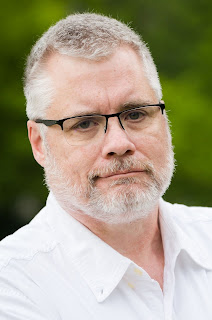Managing Editor
Interviewing someone widely considered to be a legend has always been one of the more interesting aspects of my career in journalism, but I would have paid the newspaper I was working for in June 1995 for the opportunity to sit and talk with radio personality Wolfman Jack.
 |
| Wolfman Jack was one of the most popular radio and television personalities of the 1960s and 1970s. COURTESY PHOTO |
We met in the food court at the mall, and he complimented me on the denim jacket I was wearing. His kind words made me feel at ease and led to a revealing discussion about his improbable life rising above mediocrity to become a popular and beloved radio star.
In his distinct raspy voice, the Wolfman described for me the loneliness he experienced after his parents divorced when he was a child and to overcome that, how he fell in with a gang of neighborhood hoodlums in Brooklyn. At some point, young Robert “Bob” Smith, as he was known then, started listening to rhythm and blues records and developed a fascination with that style of music, even when it began to morph in the 1950s into what was labeled as “rock n’ roll.”
Because of his childhood growing up in an integrated environment, the Wolfman told me he realized that people were the same, no matter their skin color and how he championed racial equality when he launched his career as a disc jockey, first at a tiny radio station in Newport News, Virginia and then at a station in Louisiana. His commitment to the cause of equality in music in the early 1960s drew the attention of the Ku Klux Klan which burned a cross on his front lawn and eventually convinced him to move out of the Deep South.
I asked how he came up with the idea for the Wolfman Jack persona and he told me he created it while working in Louisiana partly because of his gravelly voice and because someone who worked at the radio station thought his looks resembled Lon Chaney, Jr. the star of “The Wolfman” films of the 1940s. To top off his new character, he added the iconic wolf calls and wolf howls that “Wolfman Jack” became known for in his late-night broadcasts.
The gig which brought him to national attention was on a powerful Mexican border radio station that could be heard across most of the Southwest and into California and drew huge ratings among young listeners of rock n’ roll.
He told me when that job ended suddenly in the early 1970s, he took a less prominent broadcasting gig at a small station in Los Angeles and he thought his career was headed downhill, but it was actually about to explode. Wolfman Jack was hired to be the Master of Ceremonies for a new Friday night television series called the “Midnight Special” which featured musical headliners and bands performing their top hits live or on tape as he introduced them.
Now a top star himself, the Wolfman said he was nervous meeting John Lennon and shaking his hand, and that he was profoundly embarrassed to ask Elvis Presley for his autograph. He told me that his all-time favorites to meet though were Gladys Knight and Smokey Robinson because he was such a huge fan of their music.
Then he mentioned how he received a phone call one day from Hollywood director George Lucas about playing the part of a DJ in a movie he was making called “American Graffiti” and what it was like to act in that film with actor Richard Dreyfuss.
Throughout the interview, Wolfman Jack talked in detail about how he struggled financially to support his wife and children while first working in radio, and then how his anxiety led to experimentation with drugs. He wanted me to include that in my article to show that he was a regular person leading a regular life that became successful through hard work and determination.
We shook hands as the interview concluded, and I asked him where he was headed next. He said he was flying to Washington, D.C. where he was going to tape an episode at the Hard Rock Café there for his syndicated radio program before returning to his home and family in North Carolina.
As it turned out, Wolfman Jack did indeed tape that show the next day in Washington and then boarded a flight to North Carolina. Just hours after arriving back at his home, he suffered a major heart attack and died at the age of 57.
As it turns out, the newspaper interview that I did with him was the final one of his meteoric career, and one that I’ll certainly never forget.<










